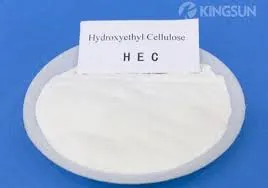
Avg . 12, 2024 22:22 Back to list
Comprehensive Overview of HPMC Grades and Their Applications in Pharmaceutical and Dietary Industries
Understanding HPMC Grades A Comprehensive Overview
Hydroxypropyl methylcellulose (HPMC) is a versatile and widely utilized compound in various industries, especially in pharmaceuticals, food, and construction. As a cellulose ether, HPMC possesses unique properties that make it an indispensable ingredient in numerous formulations. This article aims to provide an overview of HPMC grades, their characteristics, applications, and significance in different sectors.
What is HPMC?
HPMC is a non-ionic, water-soluble polymer derived from natural cellulose. Through a chemical process involving hydroxypropyl and methyl substitution, HPMC acquires properties that enhance its utility in various applications. Its functionality includes thickening, binding, film-forming, and emulsifying, which can be tailored depending on the specific grade of HPMC used.
Grades of HPMC
HPMC is available in several grades, each characterized by varying levels of methyl and hydroxypropyl substitution, viscosity, and solubility. The main categories include
1. Low Viscosity Grades These grades are primarily used for applications requiring less thickness and lower gel formation. They often serve as coatings in pharmaceutical tablets and as additives in food products to improve texture without significantly increasing viscosity.
2. Medium Viscosity Grades Offering a balance between fluidity and thickening, medium viscosity HPMC grades are popular in various formulations. They are commonly used in personal care products, agriculture, and as stabilizers in food.
3. High Viscosity Grades These grades exhibit superior thickening and gel-forming capabilities, making them suitable for more complex formulations. They are widely used in construction, particularly in cement-based products, where they enhance adhesion and workability.
hpmc grades pdf

4. Specialty Grades Some HPMC grades are tailored for particular applications, such as specific dietary requirements in food applications or specialized drug delivery systems in pharmaceuticals. These grades may possess unique properties, catering to niche markets.
Applications of HPMC
HPMC finds extensive application across numerous fields
- Pharmaceuticals HPMC is a common excipient in drug formulations, acting as a binder in tablets, a film former for coating, and a controlled release agent in various dosage forms. Its biocompatibility and non-toxic nature make it ideal for use in treatments and therapies.
- Food Industry In food products, HPMC serves as a thickener, stabilizer, and emulsifier. It helps improve the texture of sauces, dairy products, and baked goods, ensuring a consistent and appealing mouthfeel.
- Construction In construction materials like cement, mortars, and tile adhesives, HPMC enhances workability, improves water retention, and increases adhesion. This leads to better performance and durability of the final product.
- Personal Care Products HPMC is utilized in cosmetics and personal care items as a thickening agent and stabilizer, contributing to the desired consistency and performance of lotions, creams, and gels.
Conclusion
The versatility of HPMC across various industries underscores its importance as a multifunctional compound. Understanding the different grades of HPMC and their specific properties is crucial for manufacturers and formulators looking to optimize their products. As industries continue to evolve, HPMC's role as a critical ingredient will likely expand, driven by the demand for efficient, high-quality formulations in pharmaceuticals, food, construction, and beyond. Whether for enhancing product performance or improving consumer appeal, HPMC remains a vital component in the innovation of modern formulations.
-
What is HPMC?
NewsJun.06,2025
-
Understanding Redispersible Powder: The Future of Construction Materials
NewsJun.06,2025
-
Understanding RDP Powder: The Ultimate Solution for Your Construction Needs
NewsJun.06,2025
-
Pure HPMC: The Ideal Solution for Modern Construction and Building Materials
NewsJun.06,2025
-
Methyl Hydroxyethyl Cellulose: A Versatile Chemical Compound
NewsJun.06,2025
-
Hydroxyethyl Cellulose Power: The Essential Chemical for Various Industries
NewsJun.06,2025







